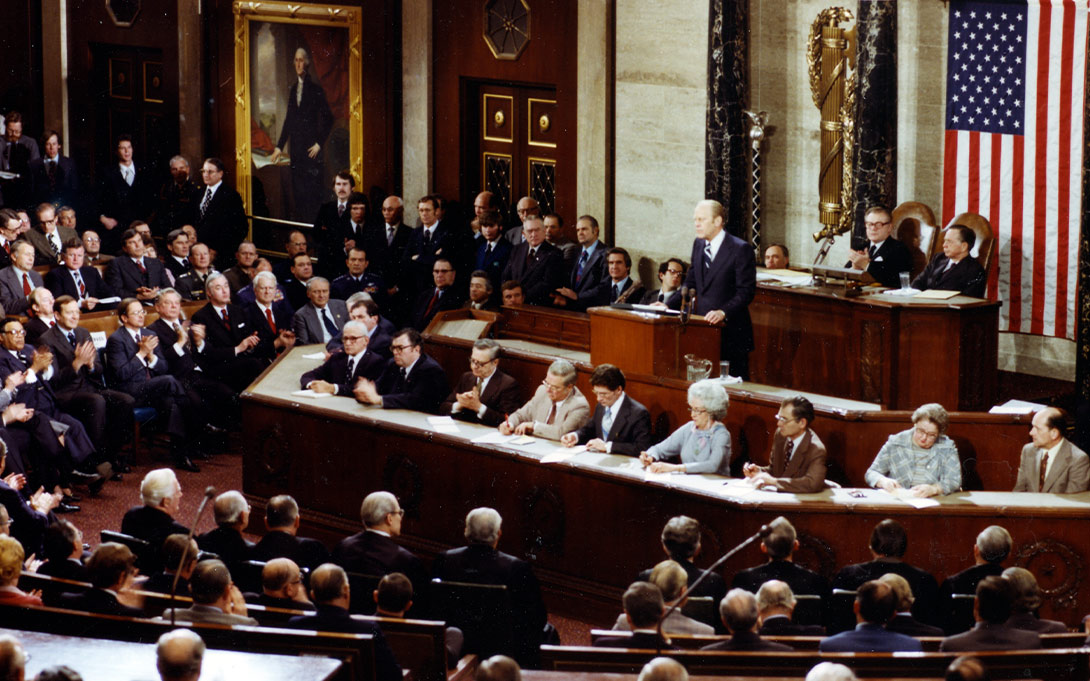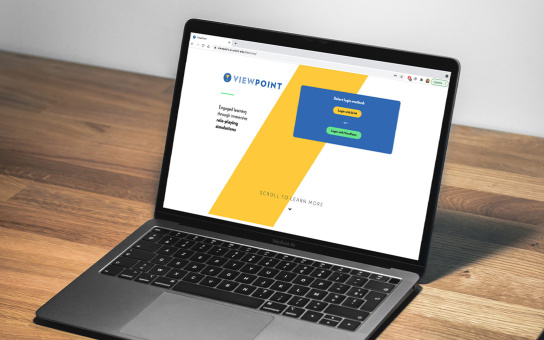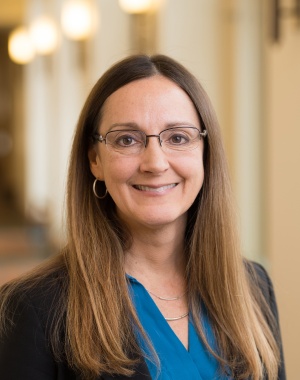
How does a president decide what to put into the annual State of the Union (SOTU) address? Which priorities should be first? How partisan or bipartisan can it be? How many applause lines could they seek? And would they ever admit that the state of the union is anything but strong?
The annual presidential address to Congress usually goes beyond being just a litany of the administration’s accomplishments and legislative goals. How that hour-plus speech is constructed, and the multiple stakeholders, advisers, critics, allies, lobbyists who try to have a say, is the topic of the 2023 Integrated Policy Exercise (IPE), the annual Ford School multi-day policy simulation. IPE is marked as being highly interactive, allowing students to immerse themselves in one or more timely policy issues, demonstrating their understanding of the policy-making process by taking on the perspectives of policy experts under "real-world" time constraints and pressures.
The Constitution dictates that the president, “shall from time to time give to Congress information of the State of the Union and recommend to their Consideration such measures as he shall judge necessary and expedient.” Since 1913, the president has delivered the SOTU in the form of a highly-publicized speech to a joint session of Congress, outlining the administration’s political and legislative priorities.
Ford School professor Elisabeth Gerber, director of the Program for Practical Policy Engagement, will oversee the IPE, with Graduate Student Instructors Abigail Johnson and Mustafa Rasheed. To inspire the exercise, the students will hear from Michael Waldman, who was Bill Clinton's head speechwriter and is now president of the Brennan Center for Justice.
They describe the importance of the exercise: Today, the SOTU serves multiple roles in the American political and public sphere. While many presidents use it to display charisma and others view it as political theatrics, our IPE will slightly deviate from this practice. In our simulation, the president has indicated that this year’s SOTU will be steeped in policy and agenda-setting. Therefore, the president is looking to receive policy input from the entire American political apparatus in the formation of this speech.
Gerber says, “The State of the Union address by definition includes a very wide range of policy issues - domestic and international, new issues and old standards, social policy, economic policy, environmental policy, fiscal policy, etc. And it involves many different policymakers and stakeholders. We made every effort to match students with roles that align with their unique interests. You are right - this is definitely a different tact from previous years, but we think it has the essential elements to engage all of our students in meaningful ways.”
Over the course of 2 ½ days, through intense negotiations, persuasion, coalition-building, and more, stakeholders will work to incorporate their role’s priorities as language into the SOTU. The simulation will culminate with the president actually delivering the SOTU to a joint session of Congress. This address will be followed by media and interest group responses.

Each participant in the IPE will be assigned to play a real person in the U.S. national policy process, including the president and vice-president, executive speechwriting team, cabinet members and their staff, members of Congress, media, interest groups, and other stakeholders. It will again use ViewPoint software to organize all the materials and provide communication and resource sharing tools for the students.
“We heard from first and second year students who shared that they were interested in a simulation that would reflect a variety of policy topics. Given this feedback, we worked to design a simulation that would provide students of all policy interests an opportunity to explore those interests or learn about a new topic. We intentionally included roles throughout the simulation that reflect the variety of political beliefs and topics in today's society so that students can learn from each other throughout the simulation,” says Johnson.
“This scenario provides the fundamental nature of policymaking and agenda-setting. Producing a strategy or policy is only half the battle, selling it and persuading stakeholders to adopt it is sometimes the harder battle. In that respect, policymaking is about how many people you can talk to and persuade. I feel this exercise will empower students at Ford to hone those skills and make them the best policy advocates an institution can cultivate,” adds Rasheed.
The IPE will take place January 19-21, 2023.
